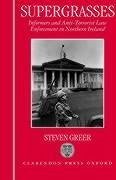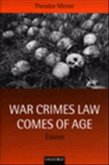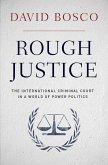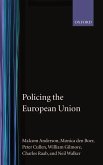The publication of this book could hardly be more timely. Northern Ireland is once again at the top of the political agenda in the United Kingdom and Ireland, and the recent ceasefires have ensured that the Troubles are the focus of renewed international attention. The need for strong due process rights in the criminal justice system as part of an overall settlement of the Ulster conflict is firmly underlined, and the study adds further support to the case for more effective mechanisms of public accountability over policing and intelligence-gathering in liberal democracies generally.
This book is about the highly controversial use of supergrasses from loyalist and republican paramilitary organizations in Northern Ireland during the 1980s. 'Supergrasses' are informers or suspects prepared to testify in court against their alleged ex-confederates in return for rewards such as immunity from prosecution, lenient sentences, and new identities. The trials in Northern Ireland in which they featured were some of the largest ever conducted in the United Kingdom. In this thought-provoking study, Steven Greer analyses these proceedings and traces their origins in the murky world of counter-terrorism and intelligence-gathering. The case for stronger legal safeguards receives particularly strong support from the extensive comparisons with similar processes in other countries. The publication of this book could hardly be more timely; Northern Ireland is once again at the top of the political agenda in the United Kingdom and Ireland, and recent developments have ensured that the Troubles are once again the focus of widespread international attention. The current mood of optimism provides an ideal opportunity for the lessons contained in this book to be properly learned and applied.
Hinweis: Dieser Artikel kann nur an eine deutsche Lieferadresse ausgeliefert werden.
This book is about the highly controversial use of supergrasses from loyalist and republican paramilitary organizations in Northern Ireland during the 1980s. 'Supergrasses' are informers or suspects prepared to testify in court against their alleged ex-confederates in return for rewards such as immunity from prosecution, lenient sentences, and new identities. The trials in Northern Ireland in which they featured were some of the largest ever conducted in the United Kingdom. In this thought-provoking study, Steven Greer analyses these proceedings and traces their origins in the murky world of counter-terrorism and intelligence-gathering. The case for stronger legal safeguards receives particularly strong support from the extensive comparisons with similar processes in other countries. The publication of this book could hardly be more timely; Northern Ireland is once again at the top of the political agenda in the United Kingdom and Ireland, and recent developments have ensured that the Troubles are once again the focus of widespread international attention. The current mood of optimism provides an ideal opportunity for the lessons contained in this book to be properly learned and applied.
Hinweis: Dieser Artikel kann nur an eine deutsche Lieferadresse ausgeliefert werden.








